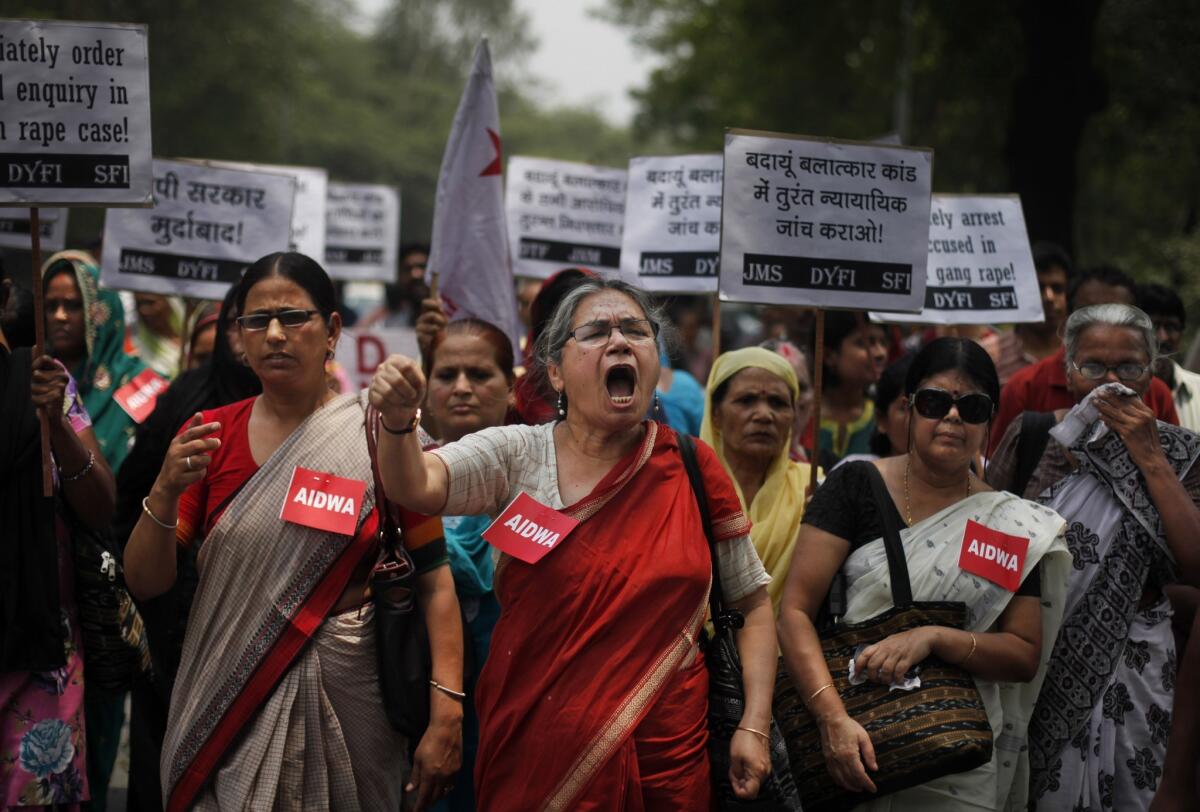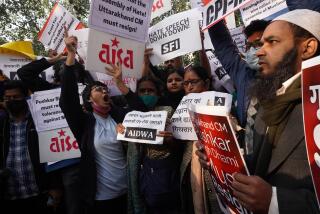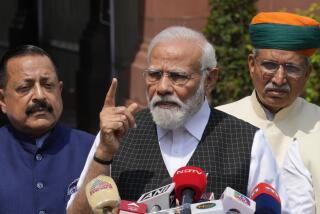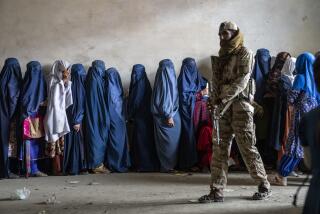Indian rights groups cite discrimination in deadly rape case

- Share via
reporting from Mumbai, India — Indian human rights groups on Tuesday blasted local officials for caste-based discrimination in the brutal gang rape of two young cousins, the latest gruesome sexual assault case to capture national headlines.
Describing crimes against members of lower castes, or social classes, as “highly prevalent” in the vast northern Indian state of Uttar Pradesh, the advocacy groups said that “violence against women is structurally used as a weapon to maintain the existing power dynamics of control and superiority of a certain caste over another.”
The report by six human rights groups came amid national outrage over the case of the two cousins, whose bodies were found hanging from a mango tree last week in the poverty-stricken district of Budaun. The girls, whose ages were variously reported as between 12 and 16, had left their home, which had no toilet, to relieve themselves on the evening of May 27 when a group of men abducted and sexually assaulted them before strangling them, according to investigators.
Upon learning they had been abducted, Sohan Lal, the father of one of the girls, went to the police station. But the constable, Sarvesh Yadav, “hurled abuses” at the father along caste lines and tried to protect the accused, the report found.
The police officer and the men accused of kidnapping the girls are from the Yadav caste, a powerful group in Uttar Pradesh that includes the state’s chief executive, Akhilesh Yadav, who has also been accused of minimizing the incident. The victims are Dalits, members of the group once known as “untouchables” who have long existed at the bottom of India’s complex and ingrained social hierarchy.
“The Yadav caste in [Uttar Pradesh] are prominent,” said Ramdular, an activist with the National Campaign on Dalit Human Rights, which contributed to the report. “They want to assert their superiority and dominance.” Ramdular goes by one name.
The case has shed fresh light on caste-based violence in rural India, where centuries-old social discrimination persists despite rapidly growing wealth in urban areas. Dalits are among India’s poorest people. Many live in homes without proper sanitation facilities, forcing women to leave their homes to use the bathroom and putting themselves at risk of violence, experts say.
It has also underscored the persistent problem of sexual assault more than a year after the gang rape of a woman in the national capital, New Delhi, prompted the Indian government to institute a host of legal measures, including harsh penalties for convicted rapists and fast-track courts to try sex-crimes cases.
Those reforms have failed to stop the problem, which advocates say is fueled by regressive attitudes toward women and by police officers who often fail to investigate crimes. Pledges by elected officials, including new Prime Minister Narendra Modi, to increase access to clean toilets for rural women are largely seen as empty or insufficient promises.
“All these are reactive measures,” said Deepa Kaushilam of Astitva, an advocacy group that works in rural Uttar Pradesh but did not participate in the fact-finding report. “The mind set of people toward Dalits and women is such that they are faced with these instances. This is not just limited to [Uttar Pradesh], but in most parts of the country.”
As a parade of high-ranking Indian officials visited the village over the weekend to register their solidarity with the victims’ families, authorities said they had arrested five suspects: three brothers accused of kidnapping and killing the girls and two police officers who failed to respond to the complaint. Two other suspects are still being sought.
Parth M.N. is a special correspondent.
More to Read
Sign up for Essential California
The most important California stories and recommendations in your inbox every morning.
You may occasionally receive promotional content from the Los Angeles Times.














